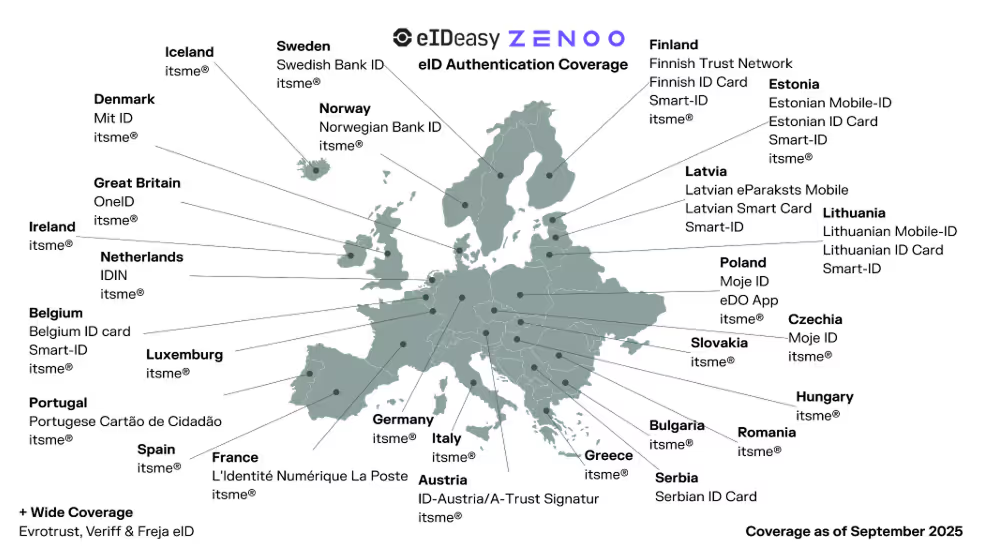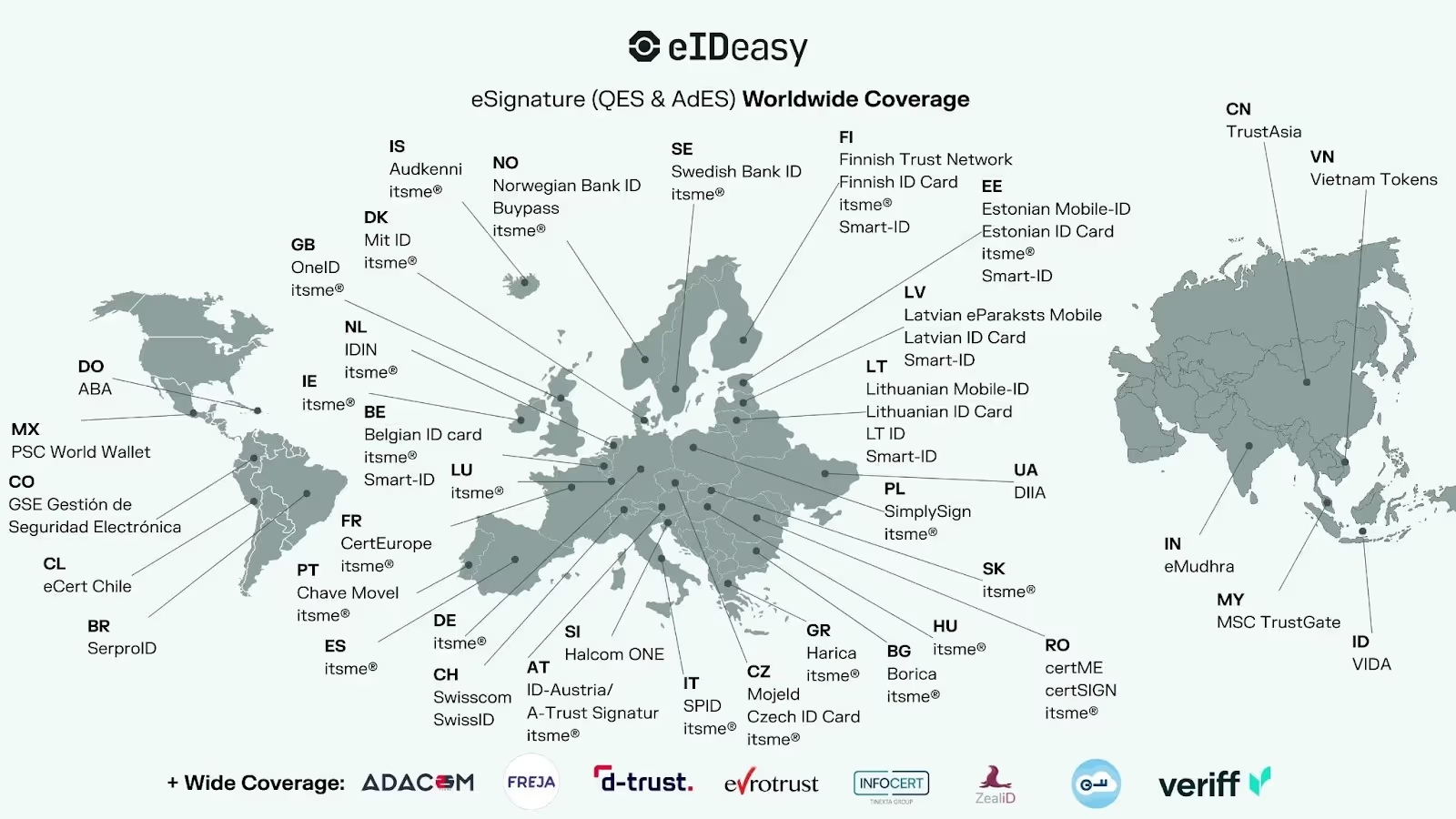
%202.svg)
Discover how eID schemes enhance digital trust, cut fraud, and streamline cross-border access—reshaping identity, security, and efficiency across Europe.
The ability to near instantly establish digital trust between organisations and their online audiences is not universal but is becoming more prevalent and certainly not the domain of the world’s leading economies. Electronic identification (eID) schemes are proving to be far more than just a digital convenience; they are essential instruments for secure, efficient, and trustworthy user identity. There are an estimated 165 such schemes currently, with new services being launched all the time. To bring that home, the Financial Times suggests digital ID systems like those in Estonia and Italy could save the UK around 2% of GDP annually by reducing benefits fraud and improving tax collection, possibly worth £2 billion per year.
With widespread use in the Nordics & Benelux: In Norway and Sweden, digital IDs are almost universal in the region, with adoption close to 90%.
Strong uptake across Europe: Countries like Belgium, Finland, and the Baltic states show solid adoption rates of around 60–70%, proving there’s real demand for a single, unified way to connect, and the UK is seeing traditional government ID scanning being replaced by simple bank checks that cover around 75% of the population.
There are, as with any innovation, drawbacks and detractors. Concerns over an ever-more monitored and surveilled society. Idiotic and ill-informed political objectives cloud their intended use and adoption schedule, as repeated British Prime Ministers’ ill-judged announcements have proven.
A national eID scheme is a government-run system that provides citizens and residents with a secure digital identity, often linked to a physical ID card or mobile solution. It enables people to authenticate themselves online, access public and private services, and carry out secure transactions such as banking, healthcare, or tax filing.
Expansion of these core citizen concepts can be seen in Open Banking checks, Mobile Driver’s Licenses and the next step in re-usable credentials and wallets, whether public or private.
Citizens with an eID can verify their identity by using unique digital credentials, such as a smart card, mobile app, or biometric check, issued by the government to securely authenticate themselves online.
eIDAS-enabled schemes enable mutual recognition of national eIDs across the EU, allowing citizens to access services in other Member States using their own government-issued IDs. cutting down on red tape, redundancy, and time-intensive manual checks.
eID systems are designed with robust Levels of Assurance (LoA), significantly lowering the risk of identity theft and fraud. For SMEs, combining eID with trust services has notably reduced administrative burden and operational costs, while enabling safer electronic transactions.
Adoption varies by country, but some national eIDs have already achieved remarkable penetration. For instance, Italy's SPID has reached 33.5 million users, Spain’s DINe serves 38 million, and Belgium’s itsMe is trusted by 7 million individuals. In Iceland, 95% of the eligible population possesses an active eID, using it more than 20 times per month across public and private services, acting effectively as a single sign-on solution.
Platforms like Zenoo and eID Easy empower compliance and growth teams to deploy fully branded, regulation‑compliant identity workflows in days—not months. By integrating dozens of public and private eID methods out of the box, they dramatically reduce friction, boost conversion, and ensure flows remain aligned with evolving EU digital identity standards.
Further concerns and evidence from early adopting nations of data breaches leading to citizens being put at risk by their own governments.
In short: eID schemes deliver security, efficiency, legal trust, and scalable deployment—a strategic enabler for any organisation looking to modernise identity and onboarding.
Ask us for a demonstration and browse the eID schemes available in the Zenoo marketplace. Our partnership with eID Easy is adding more all the time.
eideasy.com

Replace complex integrations with one unified API. Cut costs by 40% and accelerate compliance with no-code automation.